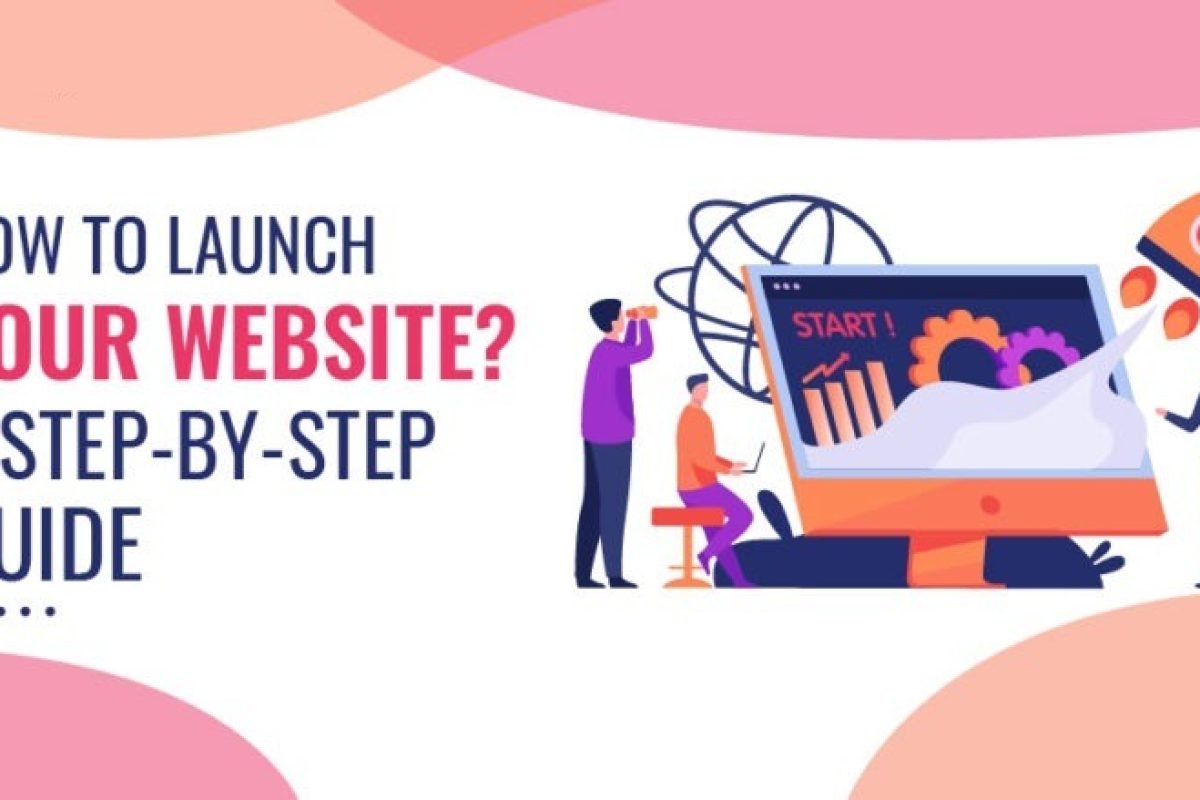In the dynamic landscape of the modern business world, an idea alone is no longer enough to propel a startup toward success. The digital age demands a robust online presence, and a well-crafted website is the gateway that transforms your entrepreneurial vision into a tangible reality. This comprehensive guide explores the transformative process from the inception of an idea to the launch of a website, unlocking the full potential of your startup in the digital realm.
Idea Conception: Nurturing the Seed of Innovation
Every great venture begins with a spark—an idea that holds the promise of solving a problem, meeting a need, or providing a unique solution. The first step in launching your startup into the digital realm is to nurture this seed of innovation. Dive deep into market research, identify gaps in the industry, and envision how your idea can make a meaningful impact.
Understanding your target audience is paramount at this stage. Who are your potential customers? What are their pain points? How can your startup address their needs? By answering these questions, you lay the groundwork for a website that resonates with your audience.
Strategic Planning: Architecting Your Digital Presence
With the idea firmly in place, the next step is strategic planning. This phase involves conceptualizing and designing your digital presence. Consider your brand identity, the message you want to convey, and how you want visitors to perceive your startup. A cohesive brand strategy ensures consistency across all aspects of your startup online presence.
Map out the structure of your website, defining key pages and their purposes. Will you have an e-commerce section? A blog to share industry insights? A contact page for inquiries? Each element should align with your business goals and contribute to a seamless user experience.
Designing the Blueprint: The Aesthetics of Digital Architecture
The design phase is where your website starts taking shape visually. The aesthetics of your website play a crucial role in capturing the attention of visitors and conveying your brand personality. Invest in a clean, modern design that reflects your startup’s identity and values.
Consider user experience (UX) in the design process. A user-friendly interface ensures that visitors can navigate your website effortlessly. Mobile responsiveness is non-negotiable, given the prevalence of smartphone users. Your website should provide a consistent and enjoyable experience across all devices.

Content Creation: Crafting a Compelling Narrative
Content is the soul of your website. From captivating headlines to informative blog posts, every piece of content contributes to the narrative of your startup. Develop a content strategy that aligns with your brand voice and speaks directly to your audience.
Incorporate storytelling techniques to make your startup relatable. Share the journey of how the idea evolved into a business, introduce the faces behind the brand, and highlight the value your products or services bring to customers. High-quality & engaging content not only attracts visitors but also keeps them coming back for more.
Development: Bringing the Vision to Life
The development phase is where the technical aspects of your website come to life. Engage a skilled web development team or use user-friendly website builders to bring your vision into reality. Pay attention to functionality, ensuring that all features work seamlessly.
Optimize your website for search engines (SEO) during development. Conduct keyword research and strategically incorporate relevant keywords into your content. A well-optimized website ranks higher in search engine results, increasing its visibility to potential customers.
Testing: Ensuring a Flawless User Experience
Before the grand launch, thorough testing is essential. Test your website across various browsers and devices to ensure compatibility. Check for broken links, loading times, and functionality issues. User testing can provide valuable insights into how real users interact with your site, helping you fine-tune the user experience.
Security is a critical consideration during testing. Implement measures such as SSL certificates to protect user data and build trust. A secure website is not only essential for user confidence but also for SEO rankings.

Launch Day: Unveiling Your Digital Venture to the World
The culmination of months of hard work and meticulous planning arrives on launch day. Unveiling your website to the world is a momentous occasion that marks the official entry of your startup into the digital realm. Generate buzz through social media, email marketing, and any other channels relevant to your audience.
Ensure that all elements are in place for a successful launch. Double-check that your website is optimized for performance, your content is error-free, and your marketing strategies are ready to roll out. A smooth launch sets the tone for a positive user experience and establishes credibility from the outset.
Post-Launch Optimization: Refining for Ongoing Success
The launch is not the end; it’s the beginning of an ongoing process of refinement and optimization. Monitor the performance of your website using analytics tools. Track user behavior, assess which pages are performing well, and identify areas for improvement.
Engage with your audience through feedback forms, surveys, and social media. Listen to their insights and adapt your website accordingly. The digital landscape is ever-evolving, and staying responsive to changes ensures that your startup remains competitive and relevant.
Marketing and Promotion: Driving Traffic and Engagement
A website, no matter how well-designed, needs an audience to thrive. Implement a robust marketing strategy to drive traffic to your site. Utilize social media, content marketing, email campaigns, and paid advertising to reach your target audience.
Engage in search engine marketing (SEM) to boost your online visibility. Invest in paid advertising campaigns, particularly in the early stages of your startup, to increase brand awareness and attract potential customers.
Building Relationships: Beyond the Digital Interface
While your website serves as the digital face of your startup, building relationships goes beyond the online interface. Foster connections through responsive customer support. Provide multiple channels for inquiries and ensure timely and helpful responses.
Participate in industry events, both online and offline, to network with potential clients, partners, and collaborators. Personal connections and word-of-mouth referrals are powerful tools in building a strong foundation for your startup.
Scaling Up: Adapting to Growth and Success
As your startup gains traction and experiences growth, scalability becomes a key consideration. Ensure that your website can accommodate increased traffic and transactions. Regularly update content to reflect the evolution of your brand and offerings.
Consider expanding your website’s features and functionality to meet the changing needs of your audience. E-commerce capabilities, interactive elements, and additional resources can enhance the user experience and contribute to sustained success.
Conclusion: The Endless Possibilities of a Digital Venture
From the initial spark of an idea to the dynamic reality of a fully functional website, the journey of launching a startup into the digital realm is transformative and filled with endless possibilities. The website becomes more than just a virtual storefront; it’s a powerful tool for building brand identity, connecting with audiences, and driving business success.
Embrace the evolution of your digital venture, staying attuned to market trends, technological advancements, and the ever-changing needs of your audience. By continually refining your online presence, you position your startup not just to survive but to thrive in the competitive landscape of the digital era. The possibilities are boundless, and your website is the key to unlocking them. Launch with purpose, adapt with agility, and watch your startup flourish in the vast expanse of the digital realm.

FAQ
Why is having a website crucial for launching a startup?
In the digital age, a website serves as the virtual storefront for your startup, offering a platform to showcase your products or services, establish credibility, and connect with a global audience.
How do I nurture and develop my startup idea before creating a website?
Conduct thorough market research to understand your target audience, identify market gaps, and envision how your idea can address the needs of potential customers. This foundational step sets the tone for a website that resonates with your audience.
What role does strategic planning play in launching a website?
Strategic planning involves conceptualizing and designing your digital presence. It includes defining your brand identity, mapping out the structure of your website, and aligning every element with your business goals for a cohesive online experience.
How important is the design of the website for a startup?
The design of your website is critical in capturing the attention of visitors and conveying your brand personality. Invest in a clean, modern design that reflects your startup’s identity, prioritizes user experience (UX), and is mobile-responsive for a seamless interface across all devices.
What role does content play in the success of a startup website?
Content is the soul of your website, contributing to the narrative of your startup. Develop a content strategy that aligns with your brand voice, incorporates storytelling techniques, and provides valuable information to engage and retain visitors.
How do I optimize my website for search engines during development?
Optimizing your website for search engines (SEO) involves strategic incorporation of relevant keywords into your content. Conduct keyword research and ensure technical optimization, such as fast loading times and mobile responsiveness, to improve search engine rankings.
What is the significance of testing before the website launch?
Thorough testing is essential to ensure a flawless user experience. Test your website across various browsers and devices, checking for compatibility, broken links, and functionality issues. User testing provides valuable insights into real user interactions, helping fine-tune the user experience.
How can I ensure the security of my website?
Implement security measures such as SSL certificates to protect user data. A secure website not only builds user confidence but also contributes to better search engine rankings. Prioritize security during the development phase and regularly update security protocols.
What steps can I take to drive traffic and engagement to my website?
Implement a robust marketing strategy, including social media, content marketing, email campaigns, and paid advertising, to drive traffic to your site. Engage in search engine marketing (SEM) to boost online visibility and attract potential customers.
How do I build relationships beyond the digital interface?
Foster connections through responsive customer support, providing multiple channels for inquiries. Participate in industry events, both online and offline, to network with potential clients, partners, and collaborators. Personal connections and word-of-mouth referrals are powerful tools in building a strong foundation for your startup.
What considerations should I keep in mind as my startup grows?
As your startup experiences growth, ensure your website is scalable to accommodate increased traffic and transactions. Regularly update content to reflect the evolution of your brand and consider expanding features and functionality to meet changing audience needs.
Is launching a website a one-time effort?
No, launching a website is just the beginning. Post-launch, continually refine and optimize your online presence based on user behavior, market trends, and technological advancements. Adapt with agility to position your startup for sustained success in the competitive digital landscape.
















